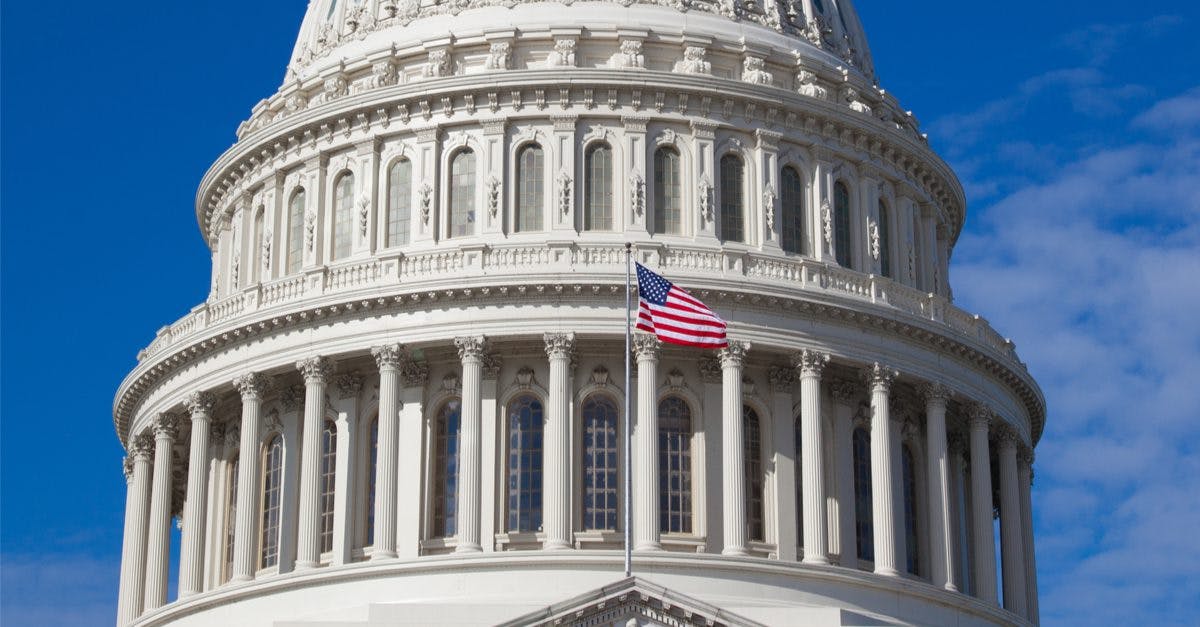Washington is Divided on Crypto, Hearing Reveals
The “America on FIRE” hearing before the House subcommittee on oversight and investigations comes at a time where governments around the world grapple with how to approach digital assets.

Source: Shutterstock
- Most committee members focused their questions on how the crypto market poses a risk to retail investors, citing the committee’s duty to protect American consumers.
- Panelists faced questions about crypto’s environmental impact, volatility and how bad actors abuse the asset class.
The “America on FIRE” hearing before the House subcommittee on oversight and investigations Wednesday revealed that policy makers in Washington D.C. have vastly different opinions when it comes to digital assets.
The hearing, fully titled “America on ‘FIRE’: Will the Crypto Frenzy Lead to Financial Independence and Early Retirement or Financial Ruin?,” featured five panelists from various traditional financial and cryptocurrency backgrounds.
Panelists faced questions about crypto’s environmental impact, volatility and how bad actors abuse the asset class.
Brad Sherman, a Democrat from Sherman Oaks, California kicked off the hearing with an opening statement that instantly drew criticism from onlooking crypto fans.
“If people want to have the animal spirits to take risks, I’d prefer them invest in equity markets to support the building of American companies, or the California Lottery to support the schools in my state,” Sherman said in his prepared remarks. “Cryptocurrencies are highly volatile.”
Most committee members focused their questions on how the crypto market poses a risk to retail investors, citing the committee’s duty to protect American consumers.
“Today’s hearing will consider the answers to these questions and assess the systemic risks to the economy, as well as the risk of loss to individual investors, caused by recent periods of extreme volatility,” said Al Green, committee chairman, during his opening statement. “Crypto assets are not backed by any form of tangible collateral.”
Environmental impacts
Committee members made a point to ask about bitcoin mining’s impact on the environment, a topic that has garnered increased interest since Tesla CEO Elon Musk’s comments.
“We all know bitcoin currently consumes enough energy to power a small nation,” said committee member Rashida Talid, Democrat from Michigan. “It’s actually an analyzed consumption of 66.14 terawatt hours. That’s actually around a third of the energy consumption of Facebook Google Amazon’s data centers, combined.”
Talid’s data came from the University of Cambridge, which she admitted is an estimate, but is largely agreed to be one of the best estimates available.
“As far as energy usage, it’s worth noting that the traditional financial sector uses an estimated five times more energy than bitcoin,” said panelist Peter Van Valkenburg, director of research at Coin Center, in response to Talid’s question.
Talid continued by asking panelist Alexis Goldstein, director of financial policy at the Open Markets Institute, whether or not cryptocurrencies are fundamentally incompatible with a carbon neutral future.
“It depends on the cryptocurrency, it depends on which system it uses for validation. Proof of work, I would argue, is the most carbon intensive of the validation systems in cryptocurrency,” responded Goldstein. “I think the answer is it depends, but I think the proof of work validation method is a climate incompatible.”
The volatility concern
Some policymakers also cited concerns with crypto’s volatility, comparing the risk with the 2008 financial crisis.
“I do have some consternation, and my consternation emanates from 2008,” said Green. “I was here when then Secretary Hank Paulson appeared… he wanted $700 billion to bail out what were called exotic products at the time. $700 billion.”
Other lawmakers pointed out that a potential ‘cryptocurrency bailout’ is an impossible scenario.
“In the last year, we’ve seen bitcoin go from a couple thousand to $60 grand then back down to $30 grand,” Anthony Gonzalez, a Republican from Ohio, said while questioning panelist Peter Van Valkenburg, director of research at Coin Center. “At any point, Mr Van Valkenburg, did the federal government ever have to step in and prop up the cryptocurrency markets, or save anybody?”
Van Valkenburg responded by pointing to gold, another store of value asset that can experience short-term volatility.
“By definition, cryptocurrencies are un-backed, we’ve heard some members question whether that’s wise, but something that’s not backed doesn’t have promises associated with it,” said Van Valkenburg. “It’s like gold. How would you bail out the price of gold, who would you pay?”
The hearing comes at a time where governments around the world grapple with how to approach digital assets. Some are more open than others, such as El Salvador, which recently approved bitcoin as legal tender. China on the other hand has been ramping up crypto restrictions in recent weeks. It is unclear how the US will move forward with crypto regulations.
“We’ve got to keep pace with China. China is close to banning all cryptocurrencies, they are going to protect their economy, protect their currency and protect their tax collection system,” said Sherman






